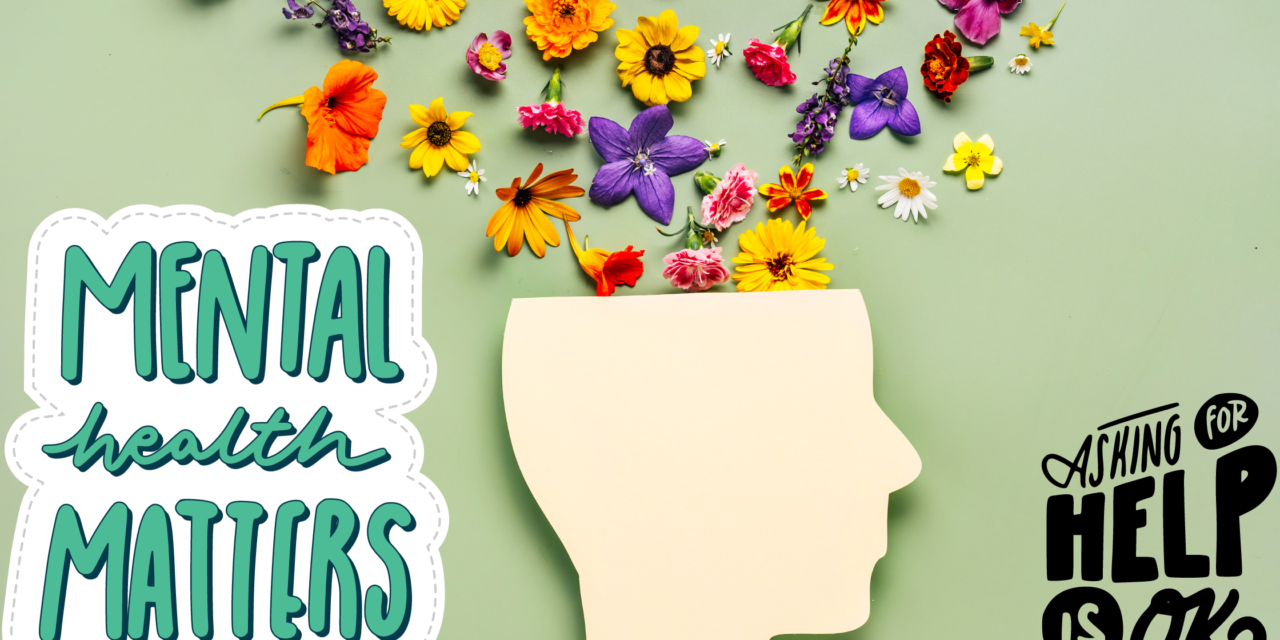This post had been in the writing for quite some months, but life took over every time I wanted to hit the Publish button.
The recent spate of student suicides at Kota and IIT Delhi triggered me into action. I felt once again the urgent need to break the silence around mental health. Especially the taboo around talking about our own mental health.
You would think that simply talking about it should be the easiest thing to do. Right?
Wrong.
Despite mental health being such an integral part of our overall well-being, in many societies, including India, discussing mental health is still forbidden. Okay, almost forbidden; you can may be mention it in the passing. Even within the boundaries of our homes, which should be the safest place to talk about ANYTHING.
And that’s why governments around the world are taking institutional steps to breaking the silence surrounding mental health, we can create a supportive environment that fosters understanding, empathy, and effective solutions for those in need.
In the US, Mental Health Awareness Month began being observed in 1949 and was started by Mental Health America to promote mental health as a critical part of overall wellness, including prevention.
In the UK, Mental Health Awareness Week happens in May. This year it’s from 15-21 May. Besides this, UK has Children’s Mental Health Week, Time to Talk Day, National Stress Awareness Day, OCD Awareness Day and more.
UN has declared 10th October as Global Mental Health Day and organises weekly focus activities through the month.
Measuring the impact of these programs can take time but what has been established beyond doubt is that talking about it helps.
In India suicides also seem to have seasons. Students’ suicide just before or after the board exams results are announced and farmer suicides during the summer months are the two widely reported. There have been widely publicised celebrity suicides over the years too.
There are headlines and editorials in the media, prime time discussions on TV and sound bytes shared over Twitter, Facebook and other social media. And that’s about it.
Yes, there are helplines and NGOs and mental health institutions that are improving their reach and acceptance, but it’s nowhere near enough!
According to National Mental Health Survey of India 2016 (I couldn’t find a more recent study), nearly 150 million individuals suffered from at least one mental health morbidity. The most prevalent ones included mental and behavioural problems due to psychoactive substance use, mood disorders (F30–F39; 5.61%) and neurotic and stress-related disorders.
The overall prevalence was estimated to be higher among males, middle-aged individuals, in urban-metros, among less educated and in households with lower income. The overall treatment gap was 84.5%.
The Stigma Surrounding Mental Health
But these data points don’t make even a dent when it comes to deep seated prejudices against mental illness. To put things in perspective, it recently caught media attention that 3000 people continue to languish in mental health institutions despite being cured and declared fit to re-join their families.
When presented with this data, Senior psychiatrist and former director of National Institute of Mental Health and Neurosciences said:
The number of persons fit for discharge and continuing to stay in mental health institutions is a reflection of serious societal challenges that need to be addressed in cases where families are unwilling to take back the person after treatment.
One of the primary reasons mental health is rarely discussed in India is the pervasive stigma attached to it. Stigmatisation leads to discrimination, isolation and a lack of acceptance, making individuals reluctant to seek help or even acknowledge their struggles openly.
Impacts of Ignoring Mental Health
The consequences of not addressing mental health are far-reaching. Ignoring mental health issues only aggravates the situation, leading to increased distress, reduced productivity and strained relationships.
According to Statista, every seventh Indian suffers from some form of mental disorder. 74% of Indians suffer from stress while 88% suffered from some kind of anxiety disorder. And unsurprisingly, there has been significant increase in number of cases for stress and anxiety among Indians since the pandemic.
WHO estimates that the burden of mental health problems in India is 2443 disability-adjusted life years (DALYs) per 10,000 population; the age-adjusted suicide rate per 1,00,000 population is 21.1. The economic loss due to mental health conditions, between 2012-2030, is estimated at USD 1.03 trillion.
So it’s not just about personal health and well being. It impacts the economy, country and a society as a whole.
The Need for Awareness and Education
Raising awareness and promoting education about mental health is crucial in dispelling myths and misconceptions. By providing accurate information, we can dismantle the barriers that prevent open discussions. Celebration of Mental Health Awareness Month or week, serves as a prime example of a campaign that encourages conversations, awareness and access to resources.
India and other countries who are not yet doing this can adopt similar initiatives to foster an environment where mental health discussions are not only accepted but also encouraged.
Because, let’s be honest, celebrating or marking a day doesn’t help. The message doesn’t even reach everyone, let along have an impact. A long drawn focus week or month can really make the difference, especially when it becomes and annual feature.
Breaking the Silence within Four Walls
While it is disheartening that mental health discussions remain limited even within the safety of our homes, it is essential to understand the factors contributing to this silence. Deeply ingrained cultural beliefs, societal expectations, lack of support and lack of knowledge about mental health contribute to the reluctance in talking about it. However the stigma is gradually decreasing and more individuals are seeking help.
LiveLoveLaugh, the mental health foundation started in 2015 by actor Deepika Padukone conducted a survey in 2018 to understand how India and Indians perceive mental health. A follow-up survey was then conducted in 2021, which indicated a significant shift, for the better. COVID-19 and the subsequent lockdown acted as the catalyst not just to boost the conversation but also impact perceptions.
| 2018 | 2021 | |
|---|---|---|
| Would seek treatment and support someone seeking treatment | 54% | 92% |
| Individual with mental illnesses can perform responsibilities | 32% | 65% |
| Aware of at least one mental illnesses | 87% | 96% |
Encouraging individuals to seek help for mental health concerns is vital. Recent studies have shown that early intervention and proper treatment significantly improve outcomes for mental health conditions. Offering support and understanding within families and communities can play a crucial role in breaking down barriers and encouraging individuals to seek professional help when needed.
Addressing Mental Health in Schools and Workplaces
To create a truly supportive environment, mental health conversations need to go beyond our homes. Incorporating mental health education and awareness programs in schools and workplaces is essential. Studies have shown that mental health education in schools improves students’ well-being, reduces stigma and fosters empathy and understanding among peers.
CBSE has made it mandatory to have a full time student counsellors in all its affiliated schools and state governments are doing their bit as well.
Similarly, promoting mental health initiatives in workplaces, such as access to counseling services and regular stress management programs, self-care day off, etc. can significantly benefit employees and increase overall productivity.
How to Ensure Positive Mental Health
This post would be incomplete without discussing a few different ways in which we can easily ensure positive mental health.
Let’s delve into 5 essential practices for maintaining good mental health and well-being. By incorporating these strategies into our lives, we can nurture our mental well-being and foster a positive mindset.
#1. Prioritizing Physical Health
Taking care of our physical health directly impacts our mental well-being.
Engage in regular physical activity for at least 30 minutes each day, whether it’s running, walking, yoga, dancing, cycling or even gardening.
The idea is to move.
Even people living in blue zones of the world – places where the world’s healthiest and happiest people live – make it a point to keep moving through the day.
Because physical exercise releases endorphins, which help reduce stress, improve mood and increase overall well-being. Additionally, maintaining a balanced and nutritious diet, ensuring you’re getting essential nutrients for optimal brain function, is also crucial.
#2. Fostering Social Connections
Nurturing positive relationships and building social connections is crucial for mental health.
Research has shown that people that have strong relationships with family members and friends are less prone to mental health issues. So you should try to foster meaningful relationships. Having even that one or two such persons in life is a good start.
And when you need, it is crucial to seek support from friends, family or support groups, as they provide a sense of belonging, emotional support and a safe space to share our thoughts and challenges.
Having someone to confide in and share experiences with can further alleviate feelings of isolation and loneliness.
#3. Challenging Stigma and Increasing Awareness
Reducing the stigma surrounding mental health is vital to creating an open and supportive society. Education and awareness play a pivotal role in breaking down barriers and misconceptions.
Some easy ways to do this is by freely sharing resources (articles, books, videos or podcasts) that debunk common myths and invite discussions around them.
A simple, hey what did you think about the article I shared, would do the trick!
Besides increasing increase understanding about mental health, it helps create an environment that supports mental well-being.
#4. Practicing Self-Care
It starts with you. Taking time for self-care is essential in maintaining good mental health.
Engage in activities that bring you joy and relaxation, such as reading, listening to music, pursuing hobbies or practicing mindfulness and meditation or whatever else that gives you joy.
Prioritizing self-care helps reduce stress levels, promotes self-compassion and enhances overall well-being.
#5. Expressive Writing
Research has shown that expressive writing can have positive effects on mental health, including reducing symptoms of depression and improving focus and clarity.
That’s because engaging in expressive writing allows us to process emotions, gain clarity and reduce stress and anxiety. This is something that I have experienced and vouch for firsthand.
Being a solopreneur means I do not have a readily available team of people I can ask for advice or share my challenges or frustrations. Writing in the journal helps clarify my thoughts around the most pressing issues. I understand my own emotions, approach and fears around them. This further helps me find solutions to my problems, be it personal or professional.
You can consider dedicating a journal or notebook to jot down your thoughts, feelings or experiences.
Conclusion
Incorporating these practices into our daily lives can greatly contribute to maintaining good mental health and well-being. Prioritize physical health, nurture social connections, challenge stigma, practice self-care, and consider engaging in expressive writing to enhance your mental well-being. Remember, taking care of our mental health is just as important as taking care of our physical health. By investing in our mental well-being, we can lead happier, more fulfilling lives.








Trackbacks/Pingbacks